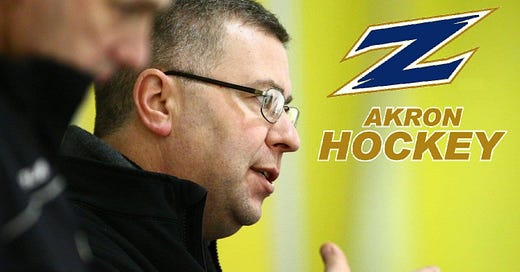Asking a question is an underrated skill in many arenas of life, and the hockey rink is no exception.
The Development Progression
As a coach (or manager, boss, parent, player, etc.), there is a natural progression as you grow in your leadership abilities:
Yelling —> Telling —> Asking
Yelling
I like to call this “PlayStation Hockey”, where coaches, teammates, and parents alike yell at the players on the ice what they ought to do next.
The player doesn’t need to think or develop any decision-making skills (plus, the acoustics in hockey rinks are normally pretty terrible, so yelling is futile regardless).
Telling
After a shift, someone tells the player what they should’ve done differently in the situation.
By telling the person an answer, you are unable to gather the relevant information needed to best help your teammate, player, parent, child, etc.
Asking
Rather than yelling or telling, it’s question-asking in a curious manner that leads to best understanding the player.
Quality question asking allows for greater understanding as it relates to where the player is at, as it meets them at their level. That understanding of the person’s depth and breadth of knowledge leads to greater effectiveness in working with that player.
The Best Question In Hockey
What did you see?
This is the best question in hockey. This simple question opens the gate to many levels of understanding and improvement. Listening well allows you the ability to:
Understand where they are
Guide them from point A to point B
Increase stickiness of the learning
For example, let’s say a player comes back to the bench after a shift and missed a glorious pass to a teammate that would have led to a great scoring chance. Rather than yelling at him/her that they can’t miss that pass, or telling him/her why the player missed the pass, we can ask the question to better understand where the issue was in the first place. It could be either the player didn’t see it or failed to pick up the proper cues.
1) Not seeing in the first place
This could be an issue of failing to look/shoulder check, poor body orientation, or poor communication between teammates.
This typically comes from a lack of awareness or understanding of the situation(s).
2) Failing to pick up relevant information
Maybe they saw the situation but either picked up the wrong information and/or failed to understand the most relevant information and cues.
It’s not enough just to look, but it’s also necessary to see the right cues and signals.
Both of the above issues normally mean that the game is moving too fast for the player to process. Finding ways to slow the perception of speed in the player’s mind is critical for their improvement.
Other Great Developmental Questions
What did you feel out there?
Understanding their athletic feel
How would you play that differently next time?
Allowing them to problem solve alternative scenarios that work for their skillset
What led you to make that decision?
Understanding their decision-making process
To best help someone grow and flourish, focus on less yelling and telling… and more about asking questions.
This is why when I create practice plans and drills, there is always a section for quality questions. I even made a drill book called “Drill, Awareness, & Questions.”
A Hall-of-Famer’s Take on Questions
On our very own Hockey IQ Podcast, newly-named Montreal Canadiens head coach Martin St Louis mentioned asking a bunch of questions to his teammates with a simple goal in mind - to better understand them, so he could more effectively work with them.
Sometimes he didn’t agree with their thoughts, but regardless the question and answer process gave him an insight into that person’s game that allowed him to be a more effective teammate (and now, a more effective coach).
Check out the full episode on your favorite podcast platform … it’s well worth your time.
Listen on Apple Podcasts
Listen on Spotify
Listen to our embedded player over on our website
Further Reading - Lessons Learned from Martin St Louis
Did you enjoy this newsletter?
Help us spread the ideas within and share it with the people you care about



